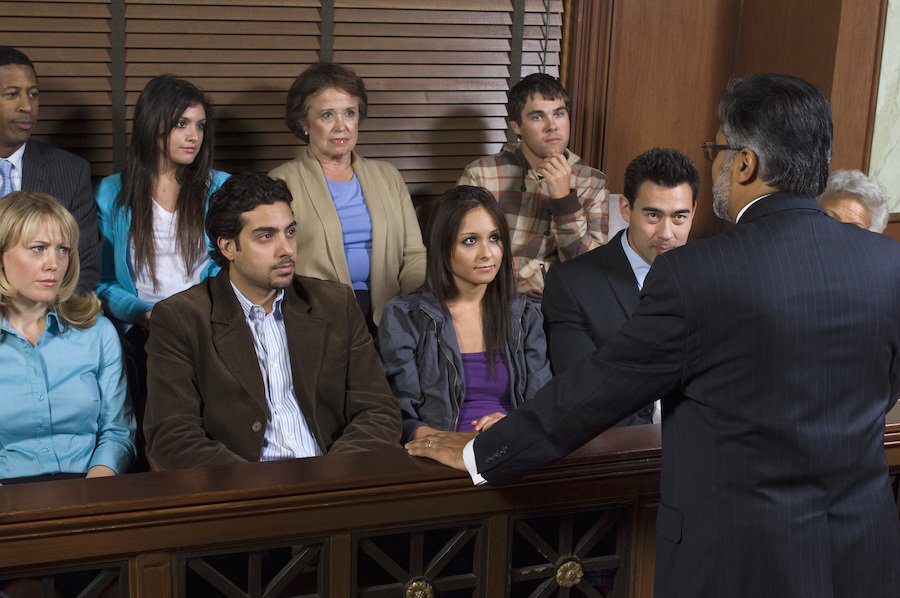In Arizona, the preliminary hearing is the court proceeding where the prosecutor has to show that there is probable cause to believe that the defendant committed the crime. If the prosecutor fails, the case will be dismissed. If they succeed, the case goes on.

During the preliminary hearing, the prosecutor will present evidence to show the magistrate that there is probable cause to believe that a crime was committed and that it was the defendant who committed it.
1. What is a preliminary hearing in Arizona?
The preliminary hearing is one of the first court appearances that defendants will make after being arrested. It happens in a justice court or a regional court center. The hearing goes before a magistrate or a justice of the peace in the precinct where the alleged crime occurred.
During the hearing, the prosecutor will present evidence to show the magistrate that there is probable cause to believe that a crime was committed and that it was the defendant who committed it.1 The use of police reports is common, but hearsay and even unlawfully obtained evidence can be presented at a preliminary hearing.2 The criminal defense attorney has a right to cross-examine any witness offered to prove probable cause.3 Once the prosecutor finishes, the magistrate will decide whether there was enough evidence to show that there is probable cause.4
The defense can then offer proof to rebut the finding of probable cause. The magistrate must allow the evidence to be presented unless he or she finds that, even if the evidence is true, it would still not be enough to overcome the finding of probable cause.5
Preliminary hearings are on the record.6 If someone giving testimony contradicts themselves later on in the case, those inconsistent statements can be used to undermine his or her credibility.
If the magistrate decides that there is probable cause to believe that the defendant committed a crime, he or she will sign an order to send the case to the superior court.7 The case will then be assigned a CR, or criminal, number. A date for the arraignment will be set.
If the magistrate decides that there is not probable cause to support the criminal charges, the charges will be dismissed.8
Defendants in Arizona who have been accused of committing a felony have a right to a preliminary hearing.9 The preliminary hearing has to happen within:
- 10 days of the initial appearance, if the defendant is in custody, or
- 20 of the initial appearance, if the defendant is on pre-trial release or out on bail.10
The only exceptions to this timeframe are if:
- the criminal complaint has already been dismissed,
- the defendant waived their right to a preliminary hearing,
- the defendant was transferred from juvenile court,
- the magistrate issues a continuance on the preliminary hearing, or
- the court already made a probable cause finding during a bail bond or release hearing.11
2. When does the hearing happen in a criminal case?
The preliminary hearing happens early in a criminal case.
Following the arrest, the defendant has to be brought before a magistrate for their initial appearance within 24 hours.12 At the initial appearance, the preliminary hearing will be scheduled. Depending on whether the defendant is in custody or not, the preliminary hearing has to happen within 10 or 20 days of the initial appearance.
If the preliminary hearing ends with a finding of probable cause, the case will be “bound over” to the superior court. There, the next court date is often the arraignment and an initial pretrial conference, or a plea agreement and a sentencing date.
As its name implies, the preliminary hearing is preliminary. The burden of proof for the county attorney or prosecutor is low: They only have to show sufficient evidence to show that the defendant probably committed the crime. This is a far lower standard than the proof beyond a reasonable doubt necessary for a conviction at trial.

Prosecutors generally prefer grand juries over preliminary hearings.
3. What if the prosecutor got an indictment from a grand jury?
Arizona prosecutors sometimes pursue an indictment from a grand jury, rather than a finding of probable cause in a preliminary hearing. If they have secured a grand jury indictment, the preliminary hearing will be vacated or canceled.
To get a grand jury to indict someone, prosecutors have to show that there is probable cause to believe that a crime has been committed and that it was the defendant who did it. Because this is the same case that a prosecutor would have to prove in the preliminary hearing, once an indictment has been secured, the hearing is duplicative.
Taking this path is common because prosecutors generally prefer grand juries over preliminary hearings. Grand juries are secretive and held behind closed doors. Neither the defendant nor a law firm’s criminal defense attorney has a right to be present. They are usually unaware that a grand jury is in session and hearing their case.
This means that the prosecutor’s case is completely uncontested. It also means that any testimony given by the victim of the alleged crime or any witnesses is not subject to cross-examination. This makes it easier for prosecutors to prove that there was probable cause and move forward with their case.
4. Should I waive the hearing and go straight to arraignment?
Defendants have the option to waive their right to a preliminary hearing. Whether to waive this right is a very important decision that should only be done after talking to a criminal defense lawyer, establishing an attorney-client relationship, and obtaining legal advice.
Reasons to waive this right can include:
- the prosecutor is offering a lower bail bond, better release conditions, or release on own recognizance in exchange for the waiver,
- the prosecutor is holding a plea offer open in the superior court,
- the defendant has already decided to plead guilty or no contest, or
- to speed up the criminal procedure.
Reasons to not waive this right to the preliminary hearing include:
- the hearing forces the prosecutor to reveal what evidence they have,
- the opportunity to cross-examine witnesses can show how reliable they are, or
- obtaining testimony from witnesses in order to create inconsistent statements, later on.
5. Can a probable cause finding be appealed?
Yes, defendants can appeal a magistrate’s finding of probable cause.
To appeal the outcome of the preliminary hearing, a criminal defense lawyer can file a motion for a new probable cause finding within 25 days of the preliminary hearing.13 The motion must show the superior court that:
- the defendant’s rights were violated, or
- there was insufficient evidence or the probable cause finding was not supported by credible evidence, with specific details about what was lacking.14
If the superior court grants the motion for a new finding, it will send the case back to the magistrate judge for another court hearing. A new preliminary hearing has to be held within 15 days. If it is not, the case will be dismissed.15
6. What is a scratched or vacated preliminary hearing?
Preliminary hearings that were “scratched” or “vacated” are canceled.
If they are scratched, it means that the prosecutor was not ready to file formal criminal charges and pursue the case by the date of the hearing. Scratched preliminary hearings are canceled. The prosecutor will likely file the formal charges later on. They have 7 years to file felony charges in order to comply with the state’s criminal statute of limitations. Most misdemeanors have to be filed within 1 year. Severe moving violations, like driving under the influence (DUI), have to be filed within 2 years.
If the hearing is vacated, it means that the prosecutor has decided to secure a grand jury indictment. Because the indictment is a finding of probable cause, there is no sense in having both a grand jury indictment and a preliminary hearing. The hearing will be vacated or canceled.

Call us for help
Legal References:
- Arizona Rules of Criminal Procedure 5.4(a).
- Arizona Rules of Criminal Procedure 5.3(b) and 5.4(c).
- Arizona Rules of Criminal Procedure 5.3(a)(2).
- Arizona Rules of Criminal Procedure 5.3(a)(3).
- Arizona Rules of Criminal Procedure 5.3(a)(4).
- Arizona Rules of Criminal Procedure 5.2.
- Arizona Rules of Criminal Procedure 5.4(a).
- Arizona Rules of Criminal Procedure 5.4(d).
- Arizona Rules of Criminal Procedure 5.1(a).
- Arizona Rules of Criminal Procedure 5.1(a).
- Arizona Rules of Criminal Procedure 5.1(a).
- Arizona Rules of Criminal Procedure 4.1(a).
- Arizona Rules of Criminal Procedure 5.5.
- Arizona Rules of Criminal Procedure 5.5(a).
- Arizona Rules of Criminal Procedure 5.5(d).
